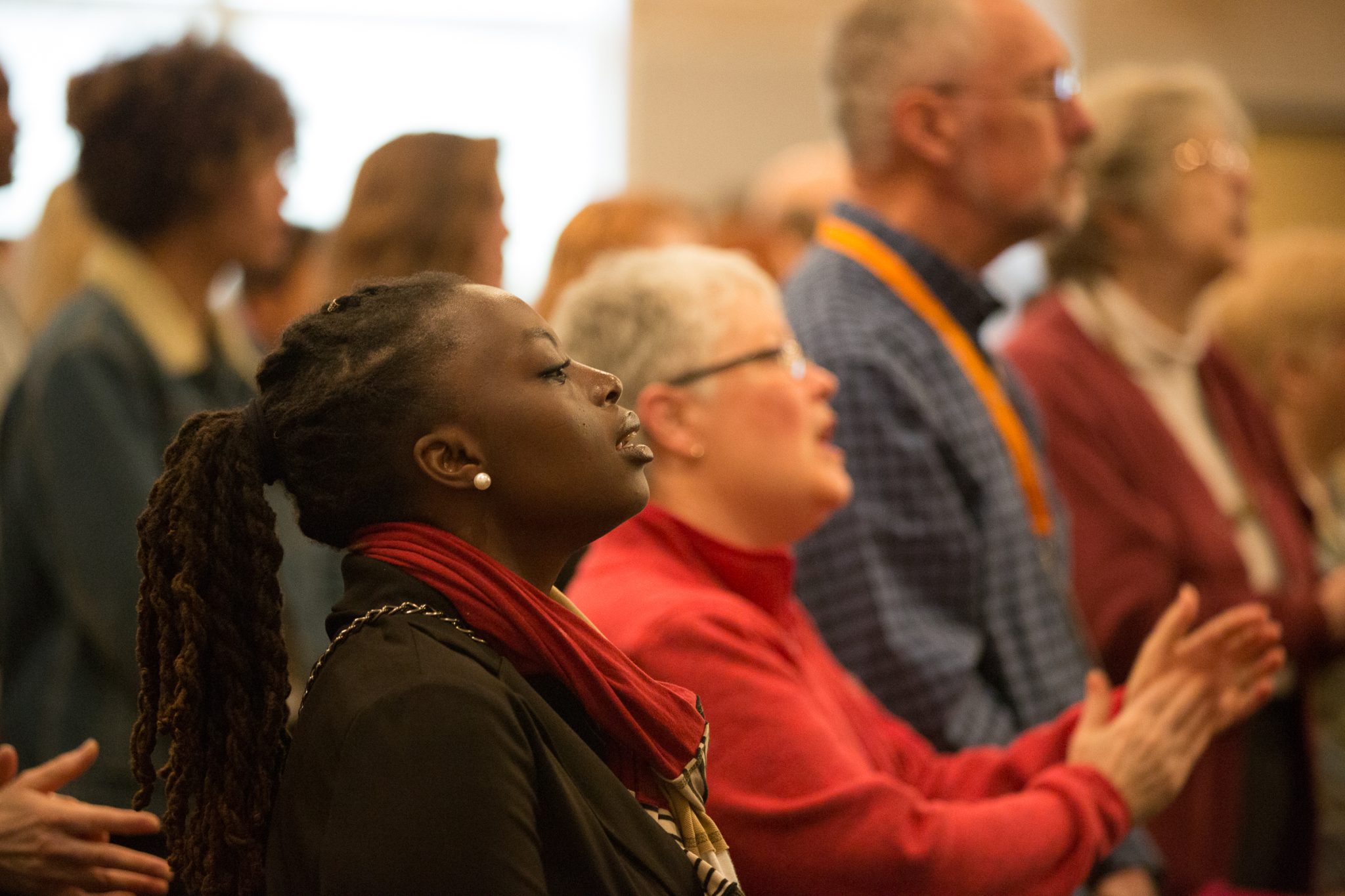By Tim Shaw
 Following up on last week’s post, here are three more reasons why singing matters:
Following up on last week’s post, here are three more reasons why singing matters:
Singing is one way God meets his people. Psalm 22:3 reads, “Yet you are enthroned on the praises of Israel.” Now, I don’t mean to suggest that singing is like rubbing a bottle in order to summon a genie, nor do I mean that God is somehow present in the actual music we make. But, through the music of his people, God makes his reign manifest. 2 Chronicles includes a fascinating account of what happened when the Ark of the Covenant was brought to the Temple: “…when the song was raised…the priests could not stand to minister because of the cloud, for the glory of the Lord filled the house of God” (2 Chron. 5:11-14). What does this mean for the Church today? Clouds no longer fill our worship spaces, after all. In 1 Peter 2:9 we read, “But you are a chosen race, a royal priesthood, a holy nation, a people for his own possession, that you may proclaim the excellencies of him who called you out of darkness into his marvelous light.” When we gather together and sing, we do the work of modern-day Levites. God is present, and he is enthroned on our praises.
When Christians sing, news of God’s Kingdom extends through the world. There is an amazing facet of music-making recorded in Nehemiah 12:43, at the dedication of the wall of Jerusalem: “And they offered great sacrifices that day and rejoiced, for God had made them rejoice with great joy; the women and children also rejoiced. And the joy of Jerusalem was heard far away.” When the Church sings communally, as a body—which is counter-cultural (and downright strange!)—people take notice.
The Son exalts the Father by singing. The author of Hebrews tells us Jesus died to conquer death. Having suffered, he now reigns. He has rescued us from death, and even from the fear of death (Heb. 2:15). In Hebrews 2:10-12 the author also makes this astonishing claim: we are his brothers (and sisters). Jesus is the unique son of the Father, but if we are also sons, we are his brothers. Jesus stands in the congregation, and it is his joy to sing the Father’s praise. What song does he sing? Psalm 22, which begins in despair: “My God, my God, why have you forsaken me?” Jesus first quotes this while on the cross. The one whom we serve, who suffered throughout his life even to the point of death, is not unfamiliar with our own distress and suffering. We, too, may cry out to God, “Why have you forsaken me?” Our Lord knows exactly how we feel in those moments. But the song does not remain a song of despair. It goes on, and in verse 22 we read: “I will tell of your name to my brothers; in the midst of the congregation I will praise you.” This is what Jesus does now, and this is what he will do forever. But he does not do this alone; he does this in community. Jesus exalts the Father by singing the Father’s praise, not as a soloist, but as our True Worship Leader, leading the song of a great congregation made up of his brothers and sisters. Someday, you and I will add our perfected voices to that eternal song of praise led by Jesus himself!
